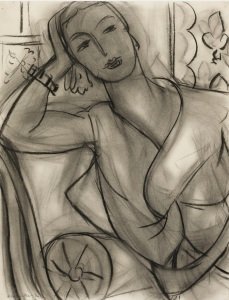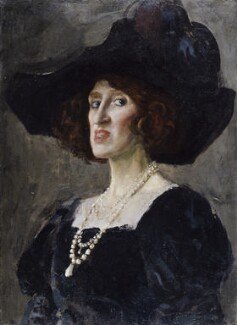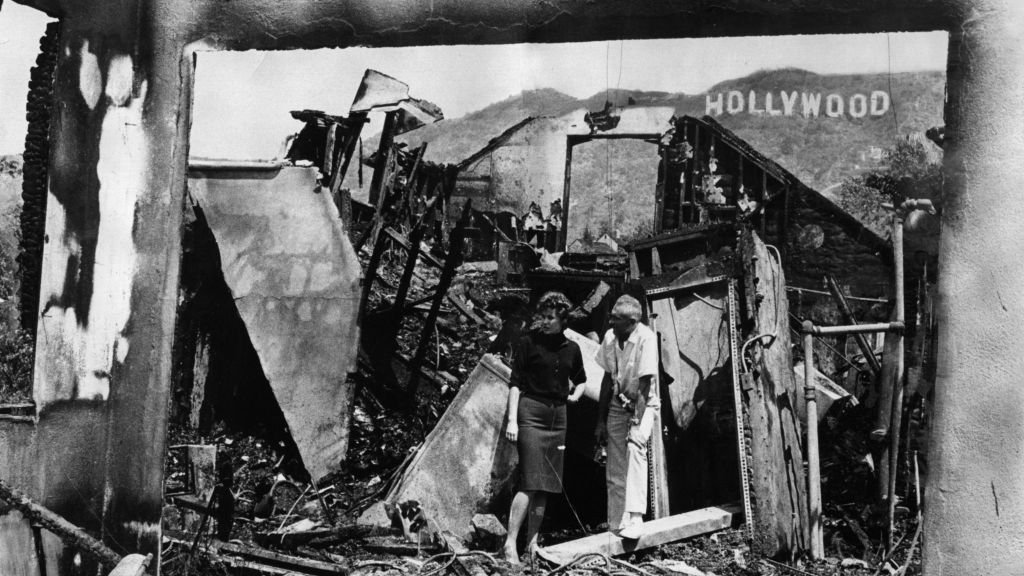Aldous Huxley
There is a neat Sheryl Crow song about a hippie chick that begins “She was born in November 1963 / The day that” - and you think she is going to sing “Kennedy died”, but it actually goes “Aldous Huxley died.” It was, as a matter of fact, the same day. Huxley finds his place in a rock song of the Nineties because he was one of the godfathers of the psychedelic experimentation of the Sixties. Indeed, the very word “psychedelic” was coined in correspondence between him and a psychiatrist called Humphry Osmond, who shared his fascination with hallucinogenic drugs.
Huxley’s encounter with mescaline - dictaphone running, to record the effects - was the most celebrated act of English literary drug-taking since Thomas De Quincey gulped down his laudanum. Huxley went on to write a book about his drug-induced hallucinations entitled The Doors of Perception thus providing a name for the archetypal rock band of the era, Jim Morrison’s The Doors.
The irony of Huxley’s becoming a guru of the hedonistic age of recreational drugs is that back in the early 1930s he had written his great anti-utopia, Brave New World, in which he warns against a world where a brainwashed populace pop happy pills instead of achieving true intellectual liberation by reading Shakespeare. In seeking nirvana through mescaline and LSD, he was forgetting his own greatest achievement: Ecstasy, the pill, test-tube babies, Virtual Reality, rampant consumerism, the leisure industry - all are prophesied by this extraordinary novel.
When George Orwell wrote Nineteen Eighty-Four at the beginning of the Cold War, he sent a copy to Huxley, who replied that he had enjoyed it but that he thought his own book was a better prophecy. The future would bring not Orwell’s famous image of a repressive state boot smashing down on a human face, but a brave new world of advertising and mind-control in which the people are made to “love their servitude”.
In the battle of the futurologists, Orwell took the lead with his anatomy of Communist oppression, but as we move into the world of CRISPR gene-editing technology and VR pornography, Huxley does indeed look more prophetic.
But Aldous Huxley was far more than the author of Brave New World. He was the kind of all-round public intellectual - novelist, satirist, upmarket journalist, science writer, social commentator, essayist ranging across all the arts - whom we associate more with continental than English life. His life was a mirror of the 20th century. Being the grandson of the populariser of evolutionary theory, T. H. Huxley (“Darwin’s bulldog”), he began with an acute consciousness of the intellectual advances of the previous century, near the end of which he was born.
Then during the First World War, in which he did not serve because of his appalling eyesight (an infection in youth left him almost blind), he became a member of Lady Ottoline Morrell’s Garsington set. This precipitated him into the world of Bloomsbury. He was thus at the forefront of the avant-garde lifestyle of the inter-war years: he and his Belgian wife had simultaneous love affairs with a colorful “Bloomsberry” called Mary Hutchinson.
He dabbled in poetry during the era of T. S. Eliot and his witty, satirical novels were all the rage among the bright young things. The best of them, Crome Yellow and Antic Hay, gently mocked the Modernist movement in exactly the way that Thomas Love Peacock’s novels such as Nightmare Abbey had mocked the Romantic movement a century before.
In the fractured Thirties, he became more politically and socially engaged, though also spent several sunlit years on the French Riviera. And then, like the century itself, he was drawn forward by the magnetic power of America. He went West and became a screenwriter, best known for his work on the scripts of the Laurence Olivier Pride and Prejudice and the Orson Welles Jane Eyre. He spent his last years in Los Angeles, living in a house just below the “Hollywood” sign. This is wholly fitting, given that the Hollywood dream factory has played such a large part in turning us into the kind of people that Brave New World predicted we would become. But there is also a warning from history: in 1961, his home and nearly all his possessions were destroyed by the Bel Air fire that raged through the Hollywood canyons. One thing that Brave New World did not predict was our age of extreme heatwaves, wildfires and other catastrophic events generated by climate change.
Over the past thirty years, I have reviewed dozens of biographies and works of literary criticism. I thought it would be an interesting exercise to rewrite some of them as blog posts, stripping them of references to the books reviewed, introducing hyperlinks, and seeing if they work as capsule introductions to the authors in question. My first such attempt was on George Orwell, so this second one has to be on Aldous Huxley.


